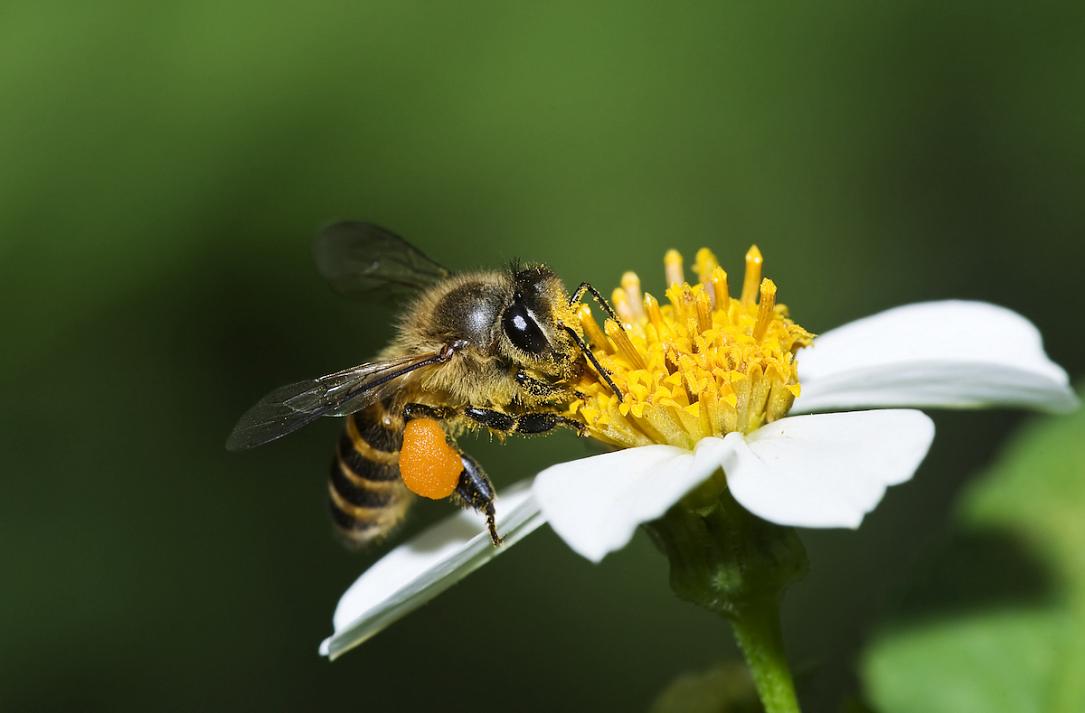BeeActive: Programmers and designers wanted to support bee survival



WWF Romania, Code4Romania, and Design Thinking Society have launched a competition to develop a mobile app that brings together the world of plants, pollinators, and gastronomy.
The Innovate for Bees competition aims to create a unique mobile app in Romania for the identification of plant species and their pollinators, including a platform for citizen engagement and a recipe area for non-alcoholic drinks and plant-based culinary delights.
Mixed teams of programmers and UX designers/experts from around the country are invited to apply with prototypes of an app capable of doing the above.
"What do technology and bees have in common? Both do great good for communities everywhere. It's time to put digital to work so we can build sustainable solutions for the environment and those who care for it," says Olivia Vereha, co-founder of Code for Romania.
The competition runs from September 20 to November 5. Registration can be done in mixed teams of 2 or maximum 3 members until September 29, by filling in the registration form. After that, registered teams have 3 weeks to design a prototype. The organizers will provide all the necessary content for the technical and graphical development of the application.
The prototypes will be evaluated by a jury made up of representatives of the competition organisers: WWF, Code4Romania, and Design Thinking Society, together with partners from the Botanical Garden D. Brândză in Bucharest, Ierburi Uitate - the botanical bar, and café FIX/Artichoke, as well as the communication agency Kooperativa.
Following the evaluation, 5 finalist solutions will be selected and the teams that proposed them will be invited to present their solution live at an event, where the winning team will be announced. The prize consists of a budget of EUR 8,000 where the winning team will have to develop the full version of the application.
Participants will have access to mentoring sessions provided by Code4Romania and Design Thinking Society, as well as webinars on various topics offered by our partners mentioned above.
The aim of the app is to bring people closer to the fascinating world of plants and insects in Romania and to put at their fingertips a tool to get involved in saving them at a critical moment - the manifestation of climate change and biodiversity loss.
The app is developed within the BeeActive project - Mobilizing citizens for the conservation of bees and other pollinating insects in Romania, developed by WWF Romania in partnership with the Norwegian Institute for Nature Research (NINA), with the financial support of Active Citizens Fund Romania.
Monia Martini, BeeActive Project Manager at WWF Romania, says that "people are usually scared of bees and don't take into account that they make an important contribution to our quality of life - from providing food by pollinating fruit and vegetable producing plants, to hive products, to their essential role in ensuring natural balance. We want to increase our understanding of these plants and make them interesting and useful in our personal lives through the upcoming interactive mobile app. Moreover, this is the first time that people will be able to influence public policies or decisions for the conservation of pollinating insects in our country with their mobile phones."
According to WWF Romania, pollinators are a vital component of ecosystems, including their role in the reproduction of wild plants and in the pollination of agricultural crops.
Their rapid decline, documented in a growing body of scientific research and caused by industrial farming practices, habitat damage and loss, and disease, represents the beginning of a systemic crisis for global environmental health and food security.
This is why, for example, neonicotinoid pesticides, toxic to bees, have been completely banned from the outdoor environment by the European Commission, and why some Member States have developed national strategies to halt the decline and conserve pollinators, involving citizens in various actions. However, Romania does not have such a strategy, and the subject is not on the agenda of the responsible authorities; what is more, Romania grants annual derogations from European legislation to allow the use of neonicotinoid pesticides in agriculture.
Through the BeeActive project, Romania wants to improve the legislation in the country, with the involvement of citizens and all stakeholders and decision-makers, by initiating an interdisciplinary consultation process to develop a national strategy and a concrete action plan to protect pollinators.
They say this should include funding schemes for pollinator-friendly agricultural practices through the National Strategic Plan for the implementation of the EU Common Agricultural Policy for 2023-2027, which is currently being prepared by the Ministry of Agriculture and Rural Development.
More information about the project is available here.
(Photo source: Wingkit | Dreamstime.com)